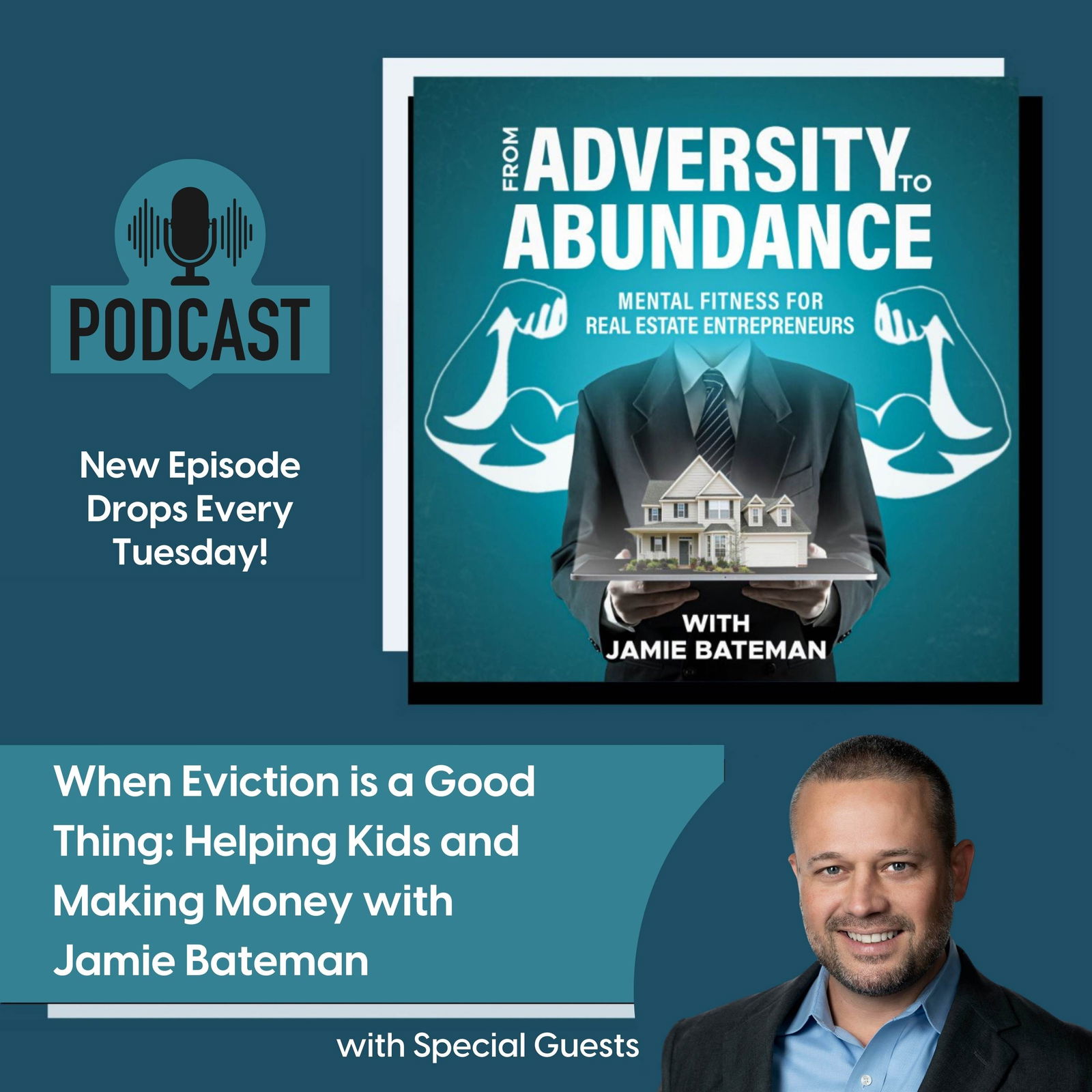Hey, real estate investors! Ever been told that mortgage note investing will bring you easy, quick returns? But instead, you've found yourself dealing with unexpected challenges and struggling to see results? If you've felt the frustration of not getting the returns you expected, you're not alone. Let's uncover a better way to navigate mortgage note investing and achieve success without the unnecessary hurdles.
The episode for this week is a case study from our host Jamie Bateman. Jamie reviews this informative case study of an actual win-win-win note deal of his. He recently presented this moving case study on the Be The Bank Broadcast, with fellow investors Justin Bogard, Jay Redding, and Chris Seveney. Stay tuned to the end to find out how you, as a note investor, can positively impact real people. In this case, kids were rescued from an awful environment.
Jamie Bateman, the podcast's host and a seasoned real estate investor, brings practical insights into overcoming obstacles in the industry. Justin Bogard's expertise in mortgage note investing, alongside Jay Redding's strategic real estate acumen, and Chris Seveney's seasoned approach to investments, collectively offer a comprehensive understanding of navigating challenges in real estate. Their case study provides an in-depth exploration of real-life investment scenarios, delivering valuable lessons and strategic considerations for investors seeking to thrive in the real estate market.
"Mortgage note investing can have a fantastic social impact, human impact, changing lives for the better, while we're making money, doing well by doing good." - Jamie Bateman
"Kids were saved from an unsafe environment. Multiple exit strategies. Equity at purchase is key." - Jay Redding
"Not every investment will be smooth sailing. You can't control the borrower. You know, in a lot of... That's why it's like you just got to be okay with, especially with these NPLs." - Justin Bogard
Connect with Justin Bogard
Website: https://www.anbfunds.com/home
LinkedIn: https://www.linkedin.com/in/justin-bogard-64314012b/
Instagram: https://www.instagram.com/americannotebuyers/
Connect with Jay Redding
Website: https://www.jmjrealestateservices.com/
https://cassidyinvestments.com/
LinkedIn: https://www.linkedin.com/in/jayredding/
Connect with Chris Seveney
Website: https://7einvestments.com/
Facebook: https://www.facebook.com/christopher.seveney
https://www.facebook.com/7Einvestments
Instagram: https://www.instagram.com/chriseveney
https://www.instagram.com/chrisseveney
https://www.instagram.com/7einvestments
LinkedIn: https://www.linkedin.com/in/christopherseveney/
Integrity Income Fund:
https://investors.appfolioim.com/labradorlending/investor/submit_interest/5
—
Labrador Mentorship:
https://labradorlending.com/investors/active-investors/
—
Haven Financial Services:
Learn more: https://jamie.myfinancialhaven.com/
—
Purchase Jamie’s Book:https://www.amazon.com/dp/B0CGTWJY1D?ref_=pe_3052080_397514860
—
Leave us a REVIEW: https://podcasts.apple.com/us/podcast/from-adversity-to-abundance/id1618672867?mt=2&ls=1
https://www.adversity2abundance.com/reviews/new/
—
Podpage:
Calling all aspiring podcasters and seasoned pros! Transform your podcast with a stunning website in minutes. Sign up for Podpage today to effortlessly grow your audience with our easy-to-use tools.
Sign up here: https://www.podpage.com/?via=jamie-bateman
Connect with us
Website: https://www.adversity2abundance.com
Facebook: https://www.facebook.com/profile.php?id=100089126144055
Instagram: https://www.instagram.com/adversitytoabundancepodcast/
LinkedIn https://www.linkedin.com/company/89949391/admin/feed/posts/
Youtube: https://www.youtube.com/@FromAdversity2AbundancePodcast
Connect with Jamie
LinkedIn: https://www.linkedin.com/in/jamie-bateman-5359a811/
Twitter: https://twitter.com/batemanjames

